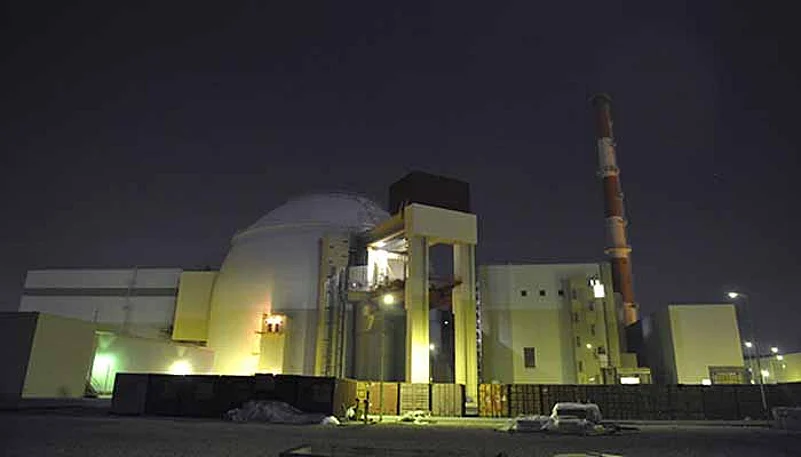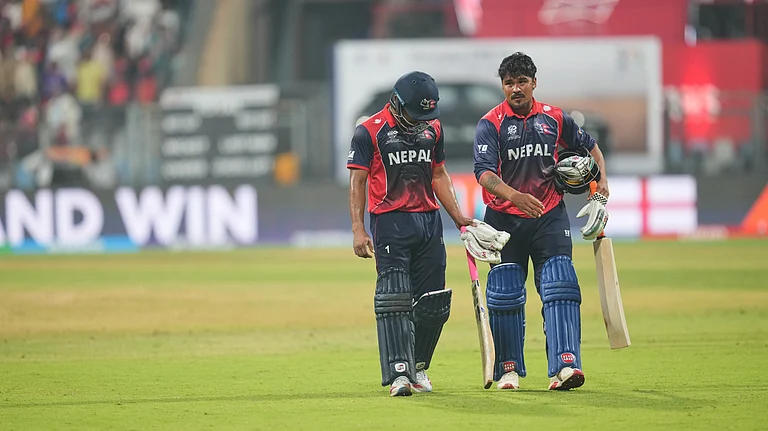USA
- Needs Pakistan to get out of Afghanistan
- Shows less concern for India, threatens its interests
- Wants to isolate Iran
India
- Opposes sanctions against Iran, response to US Af-Pak policy
- Wants to oppose the Taliban-Pakistan combine
- Iran can be of help here
Iran
- Thinks India had betrayed it
- Insists its N-programme is not for bombs
- Wants India’s support to counter Obama’s attempt to isolate it
***
Yet again, Iran has started casting its long, dark shadow on India’s ties with the US, tempering the cloudless light in which it basked. This ‘diplomatic eclipse’ comes at a time when US President Barack Obama has pulled out all stops for garnering worldwide support for his proposed sanctions against Iran. Breaking away, India has decided to join the group of nations vehemently opposed to taking punitive measures against Tehran for its alleged nuclear bomb-making programme. “As far as we are concerned, we don’t think sanctions really achieve their objectives,” Prime Minister Manmohan Singh told Obama in Washington earlier this month.
The US proposes to bring a resolution sanctioning Iran at the UN Security Council (UNSC) meeting slated in the coming days. It isn’t clear whether the UNSC will agree to impose such sanctions, and even if it does, what the precise nature of these punitive measures would be. Though India isn’t a UNSC member and its views therefore don’t count, Manmohan’s opposition to penalising Iran has sent out a clear signal—the US can’t take it for granted.
In many ways, the shift in India’s Iran policy has been brought about in response to Obama’s Af-Pak policy. The American president’s quest to withdraw from Afghanistan, the incessant chatter about reintegrating the Taliban into the power structure, and the ensuing salience accorded to Pakistan has piqued India no end. New Delhi fears its interests in Afghanistan could be sacrificed at the altar of expediency. In this script for the new Great Game in Afghanistan, India now perceives Iran as a partner through which it could create enough space for diplomatic manoeuvres.
And to think about how Indo-Iran relations had soured in recent years! Indeed, for the better part of their history, India has enjoyed extremely good relations with Iran. The two had worked in tandem to bolster the Northern Alliance, which was the only indigenous resistance group during the heyday of the Taliban. Apart from being the seat of Shia Islam, whose adherents have a sizeable population here, Iran is one of India’s main source of energy. In addition, Iran has opposed several Pakistani-sponsored resolutions against India on the Kashmir issue in multilateral fora.
But this warmth ebbed following the meeting of the board of governors of the International Atomic Energy Agency (IAEA) in 2005. Then, India decided to support a US-sponsored resolution censoring Iran for not being upfront about its nuclear programme. India repeated this in 2006. In November 2009, it again joined others in criticising Iran, but clarified that it didn’t favour sanctions against Tehran. Iran was sharp in its criticism of India’s stand at the IAEA, saying they felt betrayed by a friend. In India, this ‘betrayal’ was perceived as an outcome of Manmohan’s wish to push the Indo-US nuclear deal through. The Left, then supporting the UPA at the Centre, thought the US had arm-twisted India into taking an anti-Iran stance.
Officals in South Block say those allegations weren’t true, and India, even today, is apprehensive that Iran’s acquisition of nuclear muscle could set off a chain reaction in the region. “Such a scenario can well be a recipe for disaster as far as we are concerned,” admits a senior official. The US and other western powers suspect Iran’s nuclear programme is only a front for making bombs. Tehran denies it, and insists that it is for peaceful, civilian purposes—a right it enjoys because it’s an NPT (nuclear Non-Proliferation Treaty) signatory.
Clarifying India’s stand, the official says, “We are not in a position to make a determination on whether or not Iran is actually making nuclear bombs, we had to rely on an independent referee, which happened to be the IAEA in this case. But, simultaneously, India has been consistently opposed to sanctions against any country as it feels that they hurt the common people more than the regime against which they are being imposed.”
Such disclaimers apart, India’s shift on Iran, sources say, is linked to the disappointment with America’s Af-Pak policy. The Indian foreign policy establishment believes the Americans are trying to showcase Pakistan as a strong and close ally because it needs its assistance to usher in peace and stability in Afghanistan. This had made the Obama administration downplay India’s concerns about Washington’s arms sale to Pakistan, and Islamabad’s dilatory tactics over taking action against the masterminds of the 26/11 attack in Mumbai. True, Obama appreciated India’s role in Afghanistan and seconded New Delhi’s contention that Islamabad must do more against the terrorists. But at the end of the Nuclear Security Conference (NSC) in Washington, he harped on the need to lower tension in South Asia—a subtle message for India to enter into a full-fledged dialogue with Pakistan, irrespective of the progress on 26/11.
Indian officials show their disappointment with the US position in private. “If our concern is not yours, then there is no reason why your concerns should be mine,” says an official in South Block. It’s the Obama factor which has become a major catalyst for India’s recent engagement with Iran. In February this year, Indian foreign secretary Nirupama Rao went to Tehran for “foreign office” consultations where the two sides, among other things, spoke about deepening their cooperation in the energy sector. Then India attended the nuclear conference organised by Iran within days of Obama’s NSC, quite aware that Tehran, through its own conference, was thumbing its nose at the US. It also used the IBSA (India, Brazil and South Africa) forum to speak out against the decision to impose sanctions against Iran.
Both India and Iran were arrayed against the Taliban before their ouster from power in 2001. Should the Taliban return to Kabul in any avatar, India might have to recreate a variation of the erstwhile Northern Alliance, which had the ethnic Hazaras as an important constituent. The Hazaras are Shia, their persecution under Taliban rule had turned Iran hostile to that dispensation. Could the same scenario repeat itself?
“We may not be moving closer to Iran, but we have definitely moved away from the US on this issue,” confesses an Indian diplomat. In other words, India has kept its options open, and reveal its hand only at the time the Great Game acquires a certain pitch.

























